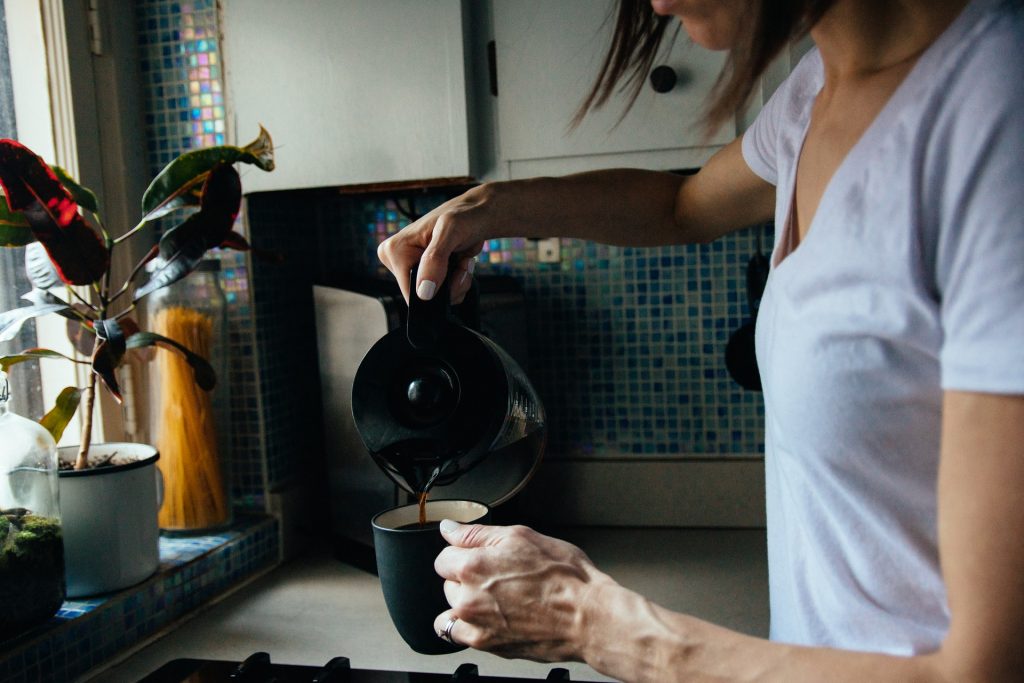 For most of us, life is a predictable procession of daily events. That doesn’t mean we don’t have variety, though. Your weekday may look the same, but have different tasks scattered throughout it that challenge and stretch you. Often, we already have a daily routine that structures our day, and we have a set way of approaching the tasks we need to accomplish.
For most of us, life is a predictable procession of daily events. That doesn’t mean we don’t have variety, though. Your weekday may look the same, but have different tasks scattered throughout it that challenge and stretch you. Often, we already have a daily routine that structures our day, and we have a set way of approaching the tasks we need to accomplish.
So, why would you need to think about creating a daily routine if you already have one? There’s a difference between doing something consciously and with purpose and stepping into something by sheer happenstance. When you’re deliberate about what you’re doing, it allows you to be effective, avoid wasting time, and identify better ways to do what you’re already doing. If you need guidance in crafting a purposeful routine or making meaningful changes to your current one, Thousand Oaks Christian Counseling is here to help you explore strategies that align with your goals and values.
Reasons for a Daily Routine
Creating structure
Far from constricting you, structure gives you parameters within which to freely work. Having to figure out what you need to do every day can make for a chaotic start and progression to your day. With structure, whether loose or accounted for down to the minute, you know what you need to do and when you need to do it.
You don’t have to dedicate too much of your day to figuring out what comes next, because you already know. This may seem dull but giving structure to your day creates a sense of stability and balance in your life.
Focus
Having a sensible routine helps you maintain focus and get things done. While flexibility may be important, when you don’t have structure, it’s easy to be distracted by things that draw your attention.
Being distracted can set you back in terms of your daily goals and can leave you in a situation where you do things last minute to catch up. Without structure, it’s also easy to feel unmotivated, because you’re just taking things as they come, and you don’t have a specific motivation to get things done.
Prioritizing what’s important
 When you plan out your day and have a set routine, you get to set your priorities and move through your day in such a way that you get to the things that matter to you. If you don’t have a deliberate routine, you can get things done, but you may overlook important things.
When you plan out your day and have a set routine, you get to set your priorities and move through your day in such a way that you get to the things that matter to you. If you don’t have a deliberate routine, you can get things done, but you may overlook important things.
For instance, in a rush to get from home to work, you may skip breakfast (as some 12% of Americans do) and forget to spend time in prayer. Those are important things that can be neglected in the crush of the many things that demand our attention every day. Having a routine goes a long way toward avoiding this by creating a clear path toward your goals.
Accountability
When you’re clear about your routine, it allows you to not only use your time more effectively but be accountable as well. That accountability may be to yourself, or someone else, whether or not they check up on you. Having a clear routine allows you to know what you use your time for, and it can also translate into greater efficiency if you find that you may be taking up a chunk of time doing unprofitable things.
Having a daily routine sets you up to achieve your goals without the stress of haphazard days. It may seem as though the point behind a daily routine is to become a productive machine, simply ticking off various tasks until you collapse back in bed at the end of your day, only to get back up and do it all over again.
However, having a daily routine means gaining control over aspects of your life that would happen without much direction and thus threaten to overtake you, and creating space in your life to do the things you need and love to. It’s about taking charge of the things that happen in your life anyway but harnessing them so that your life can flourish.
Elements of a Daily Routine
A well-thought-out daily routine can help you meet your goals and ensure that the things that are important to you do not get neglected or lost in the shuffle. Setting that routine and sticking to it is important, and you must settle what you place into your routine to help you meet your goals, whatever they may be.
 Most of us aren’t in charge of when we start and end work, but what can control is what we do before and after work, as well as on our breaks. Below are a few elements to consider as you create your daily routine. Giving careful thought to these areas will help you a lot. Each of the elements discussed is something to incorporate into your routine, but what that will look like is something each person must consider.
Most of us aren’t in charge of when we start and end work, but what can control is what we do before and after work, as well as on our breaks. Below are a few elements to consider as you create your daily routine. Giving careful thought to these areas will help you a lot. Each of the elements discussed is something to incorporate into your routine, but what that will look like is something each person must consider.
Try out a few different ideas and find what works well for you. When you’ve found a routine that works for you and your situation, you should stick to it. If things change, you can always revisit your decisions and find a new routine to suit the circumstances and still help you meet your goals.
Bedtime
This includes both going to sleep and waking up. Set aside several hours to fall asleep so that your body and brain get the recuperative benefits of sleep. Not getting enough deep sleep and REM sleep, for example, can have negative consequences for your physical health, emotions, and critical thinking skills.
Set a regular time to go to bed and to wake up. Before going to bed, set aside your electronic devices at least half an hour beforehand, and avoid drinking stimulants like coffee or fizzy drinks too late in the day, as they may interfere with falling asleep quickly.
Put your devices away so that any messages don’t disturb you, and you don’t look at them first thing in the morning. Checking your phone first thing in the morning distracts your mind and sets the tone for distraction for the remainder of the day, also affecting your ability to prioritize tasks. A better choice would be to get yourself a glass of water or pray first thing in the morning.
Meals
 Eating regular healthy meals strengthens your body, gives your mind what it needs, and allows you to avoid foods that aren’t good for you. Good sleep and healthy eating are a huge help in meeting your weight goals if you have them.
Eating regular healthy meals strengthens your body, gives your mind what it needs, and allows you to avoid foods that aren’t good for you. Good sleep and healthy eating are a huge help in meeting your weight goals if you have them.
Breakfast gives you a great start to your day. Having green tea, or a meal with whole fruit and some protein is a great start. Prepare daytime meals and snacks the day before, if possible. Eating at regular intervals can help curb hunger and help your body burn fat for energy more efficiently, so there is a benefit to eating your meals around the same time.
A varied diet that includes fresh fruit and vegetables, fish, nuts, citrus, and so on will help promote your overall health. Setting up a routine to cook and have that varied diet will be beneficial to you. Having planned out meals allows you to sit down with your family and friends – we need that social contact over some good food to help us feel whole.
Exercise
Most of us don’t exercise enough, and one of the reasons Americans don’t exercise is that our lives are too busy to make room for it. Exercise not only promotes physical health but emotional health as well. The release of feel-good chemicals when exercising boosts your mood. Get some exercise in – you’ll be happier, less stressed, and healthier for it.
Doing some type of exercise every day for half an hour is sufficient for most people. You can fit it in at the beginning of your day, or anywhere else. Getting some exercise done at the beginning of the day helps set the tone for the day and gets you into the day with an elevated mood.
Spiritual care
If humans can’t “live by bread alone, but by every word that proceeds from the mouth of God,” then spiritual care is a crucial element of our lives, even more than the food we eat. Prayer, meditating on Scripture, listening to podcasts or sermons, etc., should be part of your spiritual care.
Just like exercise, doing this at the start of a day can help set the tone for the rest of the day, but that’s not to say it can’t help you recalibrate once your day is already well underway. You can fit these things in on your morning commute, at night while you review your day and prepare for tomorrow, or anywhere in between.
Having a daily routine has many benefits. Creating one that meets your needs, schedule, temperament, and so on will help you make room in your life for the things that matter to you. Thousand Oaks Christian Counseling can provide the support and guidance you need to develop a routine that works for you and aligns with your values.
“Pouring Coffee”, Courtesy of Kelly Sikkema, Unsplash.com, CC0 License; “Socks”, Courtesy of Jisu Han, Unsplash.com, CC0 License; “Woman in Chair”, Courtesy of Daily Nouri, Unsplash.com, CC0 License; “Jogger”, Courtesy of Clique Images, Unsplash.com, CC0 License
-
Kate Motaung: Curator
Kate Motaung is the Senior Writer, Editor, and Content Manager for a multi-state company. She is the author of several books including Letters to Grief, 101 Prayers for Comfort in Difficult Times, and A Place to Land: A Story of Longing and Belonging...
DISCLAIMER: THIS ARTICLE DOES NOT PROVIDE MEDICAL ADVICE
Articles are intended for informational purposes only and do not constitute medical advice; the content is not intended to be a substitute for professional medical advice, diagnosis, or treatment. All opinions expressed by authors and quoted sources are their own and do not necessarily reflect the opinions of the editors, publishers or editorial boards of Stone Oak Christian Counseling. This website does not recommend or endorse any specific tests, physicians, products, procedures, opinions, or other information that may be mentioned on the Site. Reliance on any information provided by this website is solely at your own risk.





